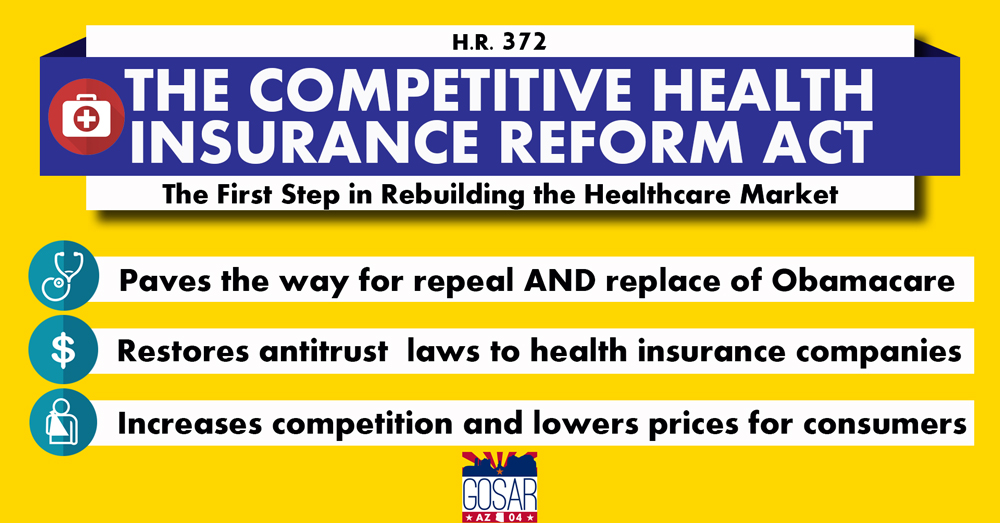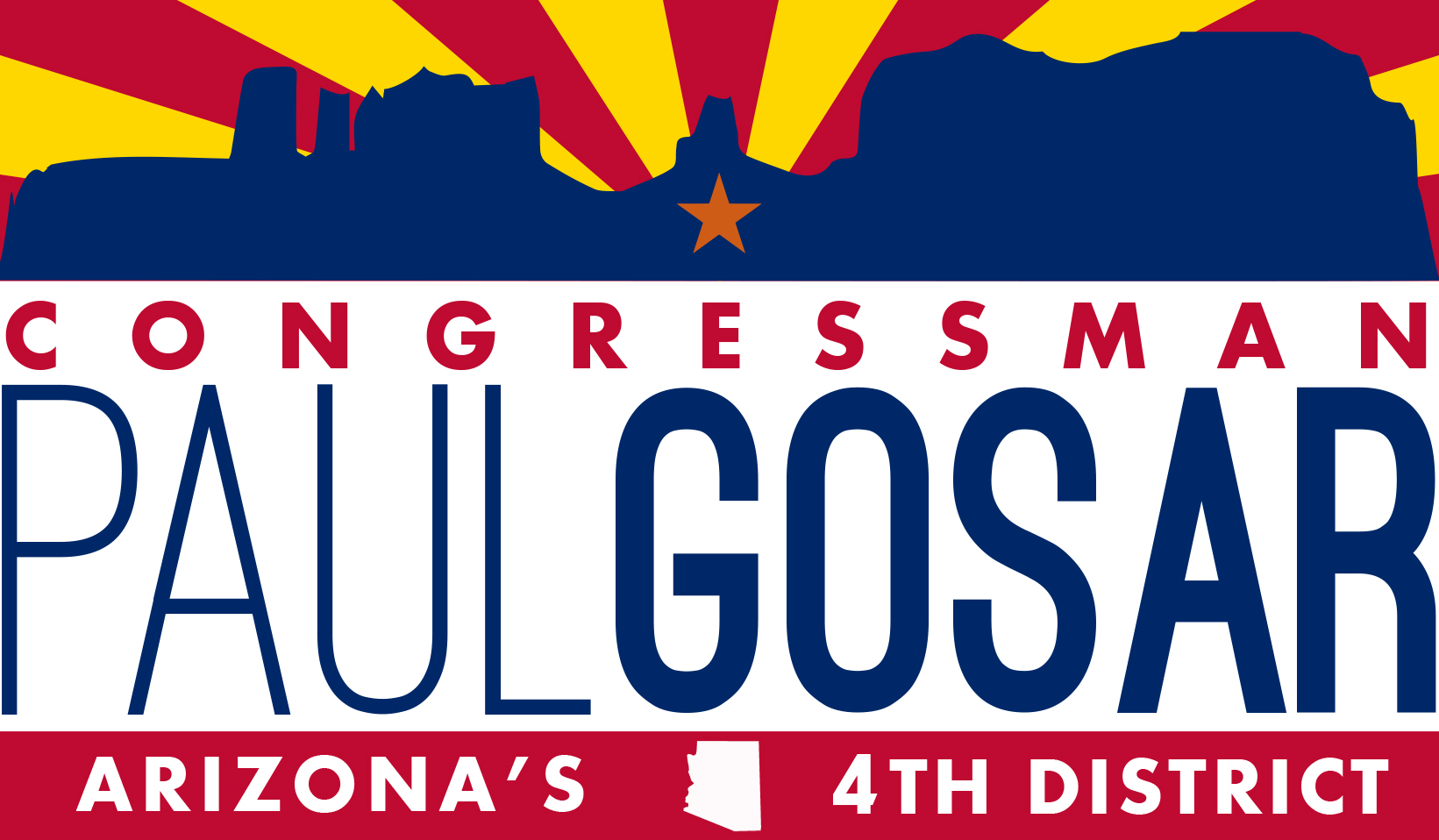|

Today, U.S. Congressman Paul A. Gosar, D.D.S. (AZ-04) released the following statement after introducing H.R. 372, the Competitive Health Insurance Reform Act of 2017, legislation that would amend the McCarran-Ferguson Act of 1945 to restore the application of federal anti-trust laws to the business of health insurance:
“The healthcare insurance industry continues to be one of the least competitive and least transparent industries in the entire nation. That’s because for over 70 years health insurers have enjoyed a special legal exemption from anti-trust laws resulting in less competition and higher healthcare costs for every single American family. By restoring federal anti-trust laws to the business of health insurance, my legislation represents a critical first step to establishing the proper foundation for a competitive and consumer-driven health insurance marketplace. Hospitals, doctors and most importantly, patients benefit when health insurers compete to provide quality coverage. Ending this special-interest exemption is an integral piece of any Obamacare repeal effort and is the only reform that will actually rein in insurance company practices, increase competition and lower prices for consumers.”
Co-chairman of the House GOP Doctors Caucus Congressman Phil Roe (TN-01) stated, “As a physician, I know there are several ways we can reduce the cost of care for patients, including increased competition in a fair market. I am proud to cosponsor the Competitive Health Insurance Reform Act and thank Dr. Gosar for his leadership on this issue.”
House GOP Doctors Caucus member Congressman Scott DesJarlais (TN-04) commented, “Since its inception, contrary to its designers’ promises, Obamacare was designed as a giveaway to powerful Washington special interests, resulting in fewer choices and higher costs for health care consumers. I’m proud to join Congressman Gosar and more of my House colleagues to offer today’s bill, which puts power in the hands of the American people, both patients and their doctors. Removing artificial barriers, such as state monopolies for the biggest insurance carriers, would increase access and affordability for millions of people still under- or uninsured, despite Obamacare’s enormous price tag and taxes. Our goal is rising job growth, wages, and patients’ ability to make their own health care decisions with their own hard-earned money. Costs and also quality will improve under our replacement plan.”
Background:
The full text of the Competitive Health Insurance Reform Act of 2017 can be found HERE.
Original Cosponsors (14): Brian Babin, D.D.S.; Dave Brat; Mo Brooks; Scott DesJarlais, M.D.; John Duncan; Walter B. Jones; Drew Ferguson, D.D.S.; Louie Gohmert; Steve King, Phil Roe, M.D.; Austin Scott; Lamar Smith; Robert Wittman; Ted Yoho.
The Congressman’s legislation is endorsed by: American Dental Association, American Optometric Association and American Association of Oral and Maxillofacial Surgeons.
The Competitive Health Insurance Reform Act of 2017 amends a section of the McCarran-Ferguson Act of 1945, which exempted the insurance industry from the Sherman Act and the Clayton Act – acts that have the purpose of ensuring fair competition. This broad exemption was intended to assist newly established insurance companies set sustainable premiums by permitting data sharing between insurance companies. These antiquated exemptions are no longer necessary. There is no reason in law, policy, or logic for the insurance industry to have special exemptions that are different from all other businesses in the United States.
Repeal of the specific sections of the McCarran-Ferguson Act which apply to health insurance has bipartisan support. A form of this legislation passed the Democratic-controlled House during the 111th Congress 406 - 19 (Roll no. 64) and passed the Republican-led House in the 112th Congress by a voice vote.
This anti-trust reform provision is included in the Republican Study Committee’s healthcare reform bill and discussed in the Speaker’s “A Better Way” white paper.
###

|


